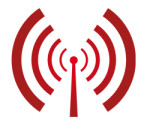As a member of NPSA, you have most likely gone to one or more of the organization’s events. These events take place in various cities around the country and each place has something unique to offer.
It is natural to want to go to places of interest but when you come to one of NPSA’s conferences, you come to visit the NPSA and to Network. The conference has educational programs where all of us learn something. Sometimes the information presented is more useful than others, but the main reason we take part in the conference is for the Networking opportunities to meet and talk to industry peers and learn how they run their businesses. Networking is more than going to industry events; it is also a part of your regular life. You know people – whether friends, family or those in organizations to which you belong. These relationships can be as valuable to you as those you establish in the industry groups. As individuals, some are more or less adept at networking – it is a very personal skill. Extroverts do better than introverts, younger people many times do better than older people and women generally do better than men.
Networking is very important for any business owner’s success – let’s talk about how you can improve your networking skills.
• Make it fun: You don’t make new contacts if you are not in a positive mode.
• Show up: Being present at events over and over again shows your commitment.
• Listen: It’s amazing how people appreciate being listened to.
• Be engaged: Show your sincere interest in other people’s businesses and lives.
• Be generous: Give something to those you meet rather than ask for something.
• Take initiative: People gravitate to those who want to do things.
• Keep it up: Maintaining relationships means staying in touch on a regular basis.
• Be patient: It takes time to see the benefits of networking.
This list of simple ways to improve Networking effectiveness doesn’t look that complicated, so now just go and do it. If you feel that your Networking skills need improvement, you have started the process…and that’s good!
Plan Your Networking
Figure out how you can get it done while maintaining your busy schedule. First of all, divide networking into categories – for example: Professional, Family and Friends. Take a look at your calendar and categorize your upcoming events within these groups. If there is too much of one category, try to find a balance between the three. Think of what you expect to experience from each of your upcoming events. If some of the events seem a bit uninteresting, take the initiative to make them interesting by contributing something that takes the event in the direction you want it to go while still providing good content to others.
Become Part of the Group
People like to do things with people they like and it is a challenge to be new to a group. Some individuals enter very easily into a new group and most often it is because they understand, more or less instantly, how people function within the group. It seems pretty basic, but when you meet people, ask them obvious questions or make obvious statements to help get a conversation going. Once you have opened the door, try to figure out the topic of greatest interest. In a business environment, it is always safe to ask what a person does. Most business owners like to talk about their own business and their own accomplishments. Listen to them and learn, give them some information of interest and all of a sudden you have added a new person to your network.
Social Networking
Facebook, LinkedIn etc. are relatively new tools for networking and they can be useful, but it takes some skill. Most of us have had some interaction through either of these networks from our personal and professional life. I like to use both, but I use them for very different purposes. My personal guideline is to keep Facebook for family and friends and LinkedIn for business relations. A few people overlap – after all, we do make good friends from business contacts now and then. Another guideline I have is to not connect with people I haven’t met. I am sure you have experienced a number of requests for connections when you participate in an event and you have to draw a line somewhere. Both Facebook and LinkedIn are good tools for networking, but using these tools requires that I am active and contribute to my contacts. Therefore, I have to be selective with those I connect to on either site.
Expand Your Social Networking
Establish a plan for who you want to connect with and give yourself a timeslot every day for networking. Set a goal for new connections on a daily, weekly or monthly basis. While you expand your Social Network this way, don’t forget to stay in touch with those whom you are already connected. Make sure you send information of interest to your connections on a frequent basis; you don’t want to be “unfriended” due to lack of activity. In summary, networking is a good business tool and it requires engagement, involvement and effort. If you take a friendly, useful and genuine approach to the process, you will see benefits in the future.




